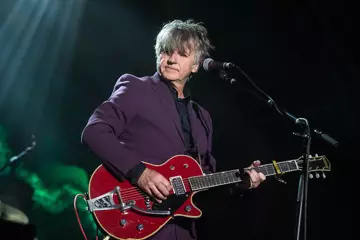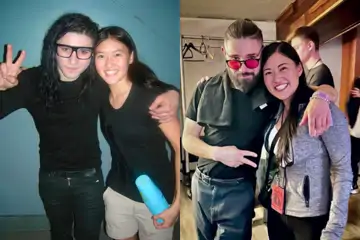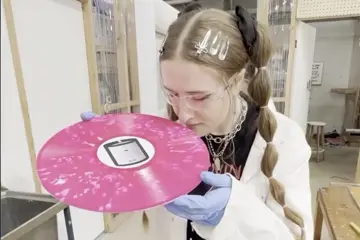It Comes at Night, the second feature from American filmmaker Trey Edward Shults after his acclaimed micro-budget debut Krisha, is the work of someone confident and in control - there's a certainty when it comes to setting up and pulling off genre conventions like the jump scare and the slow burn (a few of the former, a fair bit of the latter) but also, it seems, an understanding of their limitations.
Writer-director Shults keeps things lean and spare with this film - it has a handful of locations and a handful of characters - and one gets the feeling he has done so in order to hone his edge as a storyteller and a technician, and it pays off. It Comes at Night works terrifically as a device designed to whiten the knuckles of the viewer as the tension mounts but it also simply but effectively depicts the actions and reactions of people placed under increasingly intolerable levels of pressure and duress.
There's a virus. It's contagious, incurable and deadly. And we can speculate that it has crumbled the fuck out of civilisation. Paul (Joel Edgerton), Sarah (Carmen Ejogo) and their teenage son Travis (Kelvin Harrison, Jr) have embedded themselves in a remote rural house, isolating themselves from whatever horrors lie in the outside world.
When Will (Christopher Abbott) tries to break into what he believes is an empty house, searching for food and water for his wife Kim (Riley Keough) and little boy Andrew (Griffin Robert Faulkner), Paul at first holds him captive, then agrees that the young family can take refuge with them. It's a compassionate move, and a smart one - there's safety in numbers, after all. It may also doom them all.
Don't miss a beat with our FREE daily newsletter
The two families may be sheltered from the virus (or maybe not) but other diseases slowly begin to spread through the house - distrust from the possibility of a lie, tension stemming from repressed sexuality - and paranoia takes root. Shults doesn't overplay it, instead creating atmosphere through long silences, muffled noises and shadowed, half-visible shots, and nor do the actors, with Harrison, Jr doing incredible work as a young man trapped between childhood and adulthood and Edgerton consolidating his position as an understated but wholly magnetic lead.















